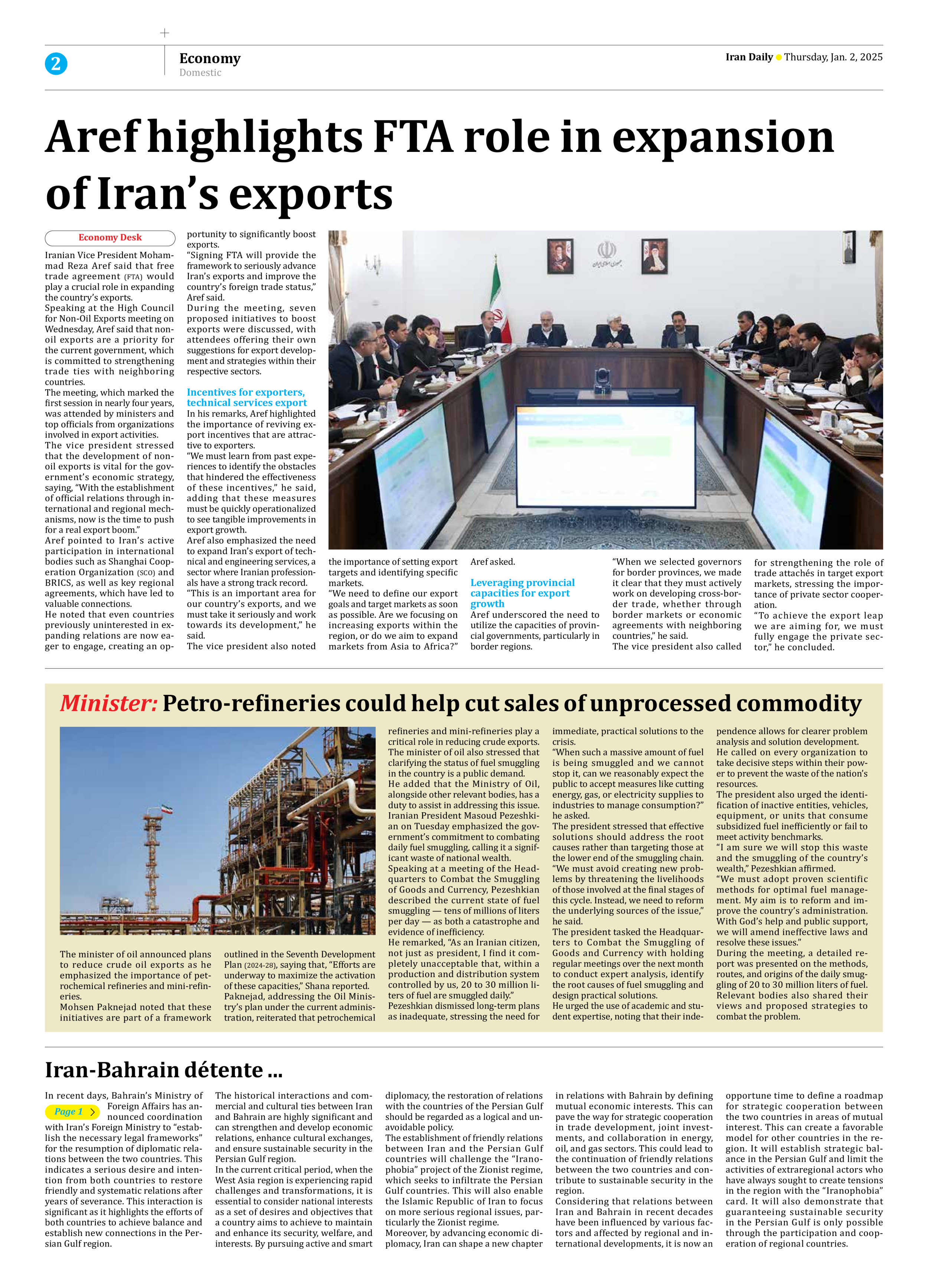
Aref highlights FTA role in expansion of Iran’s exports
Iranian Vice President Mohammad Reza Aref said that free trade agreement (FTA) would play a crucial role in expanding the country’s exports.
Speaking at the High Council for Non-Oil Exports meeting on Wednesday, Aref said that non-oil exports are a priority for the current government, which is committed to strengthening trade ties with neighboring countries.
The meeting, which marked the first session in nearly four years, was attended by ministers and top officials from organizations involved in export activities.
The vice president stressed that the development of non-oil exports is vital for the government’s economic strategy, saying, “With the establishment of official relations through international and regional mechanisms, now is the time to push for a real export boom.”
Aref pointed to Iran’s active participation in international bodies such as Shanghai Cooperation Organization (SCO) and BRICS, as well as key regional agreements, which have led to valuable connections.
He noted that even countries previously uninterested in expanding relations are now eager to engage, creating an opportunity to significantly boost exports.
“Signing FTA will provide the framework to seriously advance Iran’s exports and improve the country’s foreign trade status,” Aref said.
During the meeting, seven proposed initiatives to boost exports were discussed, with attendees offering their own suggestions for export development and strategies within their respective sectors.
Incentives for exporters, technical services export
In his remarks, Aref highlighted the importance of reviving export incentives that are attractive to exporters.
“We must learn from past experiences to identify the obstacles that hindered the effectiveness of these incentives,” he said, adding that these measures must be quickly operationalized to see tangible improvements in export growth.
Aref also emphasized the need to expand Iran’s export of technical and engineering services, a sector where Iranian professionals have a strong track record.
“This is an important area for our country’s exports, and we must take it seriously and work towards its development,” he said.
The vice president also noted the importance of setting export targets and identifying specific markets.
“We need to define our export goals and target markets as soon as possible. Are we focusing on increasing exports within the region, or do we aim to expand markets from Asia to Africa?” Aref asked.
Leveraging provincial capacities for export growth
Aref underscored the need to utilize the capacities of provincial governments, particularly in border regions.
“When we selected governors for border provinces, we made it clear that they must actively work on developing cross-border trade, whether through border markets or economic agreements with neighboring countries,” he said.
The vice president also called for strengthening the role of trade attachés in target export markets, stressing the importance of private sector cooperation.
“To achieve the export leap we are aiming for, we must fully engage the private sector,” he concluded.







